Before they pass away
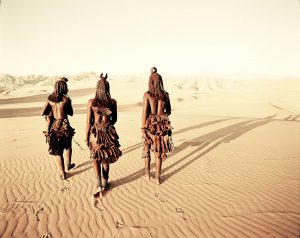 El mundo que conocemos está cambiando a pasos agigantados. El monstruo globalizador engulle nuestro mundo y lo convierte en un lugar más homogéneo, más insulso, más aburrido. Ahora podemos encontrar fácilmente un reluciente Mc Donalds en Kathmandú, en el mismo lugar que antes ocupaba un viejo templo derruido; o un guerrero masai luciendo orgulloso sus zapatillas Nike en lugar de portar una lanza. El ritmo de urbanización de las ciudades aumenta a un ritmo trepidante, más de la mitad de la población mundial habita en ellas. Y sin embargo, en pleno siglo XXI aún existen comunidades que viven en el más absoluto aislamiento. Son los últimos supervivientes de un mundo que desaparece inexorablemente. Pero antes de que eso suceda, el fotógrafo inglés Jimmy Nelson ha querido retratarlas en toda su dignidad y grandeza.
El mundo que conocemos está cambiando a pasos agigantados. El monstruo globalizador engulle nuestro mundo y lo convierte en un lugar más homogéneo, más insulso, más aburrido. Ahora podemos encontrar fácilmente un reluciente Mc Donalds en Kathmandú, en el mismo lugar que antes ocupaba un viejo templo derruido; o un guerrero masai luciendo orgulloso sus zapatillas Nike en lugar de portar una lanza. El ritmo de urbanización de las ciudades aumenta a un ritmo trepidante, más de la mitad de la población mundial habita en ellas. Y sin embargo, en pleno siglo XXI aún existen comunidades que viven en el más absoluto aislamiento. Son los últimos supervivientes de un mundo que desaparece inexorablemente. Pero antes de que eso suceda, el fotógrafo inglés Jimmy Nelson ha querido retratarlas en toda su dignidad y grandeza.
 Hasta hace muy poco tiempo, Jimmy Nelson era un fotógrafo desconocido para el gran público, a pesar de levar más de dos décadas viajando por el mundo con su cámara y haberse ganado prestigio a nivel internacional con sus magníficas imágenes. Un buen día, decidió embarcarse en un gran proyecto fotográfico al que llamó Before they pass away. Consistía en pasar dos semanas a lo largo de un año y medio en diferentes tribus aisladas del mundo, conociendo sus antiguas tradiciones, participando en sus rituales y retratándolas de una manera muy atractiva. Sus detalladas fotografías exhiben joyas únicas, curiosos peinados y vistosos atuendos, sin olvidar el entorno y los elementos culturales más importantes de cada tribu. El objetivo de Jimmy Nelson era asegurar que el mundo nunca olvidara la existencia de estas comunidades, antes de que su forma de vida cambie para siempre.
Hasta hace muy poco tiempo, Jimmy Nelson era un fotógrafo desconocido para el gran público, a pesar de levar más de dos décadas viajando por el mundo con su cámara y haberse ganado prestigio a nivel internacional con sus magníficas imágenes. Un buen día, decidió embarcarse en un gran proyecto fotográfico al que llamó Before they pass away. Consistía en pasar dos semanas a lo largo de un año y medio en diferentes tribus aisladas del mundo, conociendo sus antiguas tradiciones, participando en sus rituales y retratándolas de una manera muy atractiva. Sus detalladas fotografías exhiben joyas únicas, curiosos peinados y vistosos atuendos, sin olvidar el entorno y los elementos culturales más importantes de cada tribu. El objetivo de Jimmy Nelson era asegurar que el mundo nunca olvidara la existencia de estas comunidades, antes de que su forma de vida cambie para siempre.
Quise crear un ambicioso documento fotográfico que resista el paso del tiempo, registrar un mundo que desaparece rápidamente.
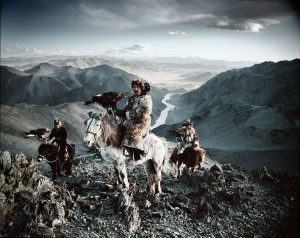 Before they pass away viaja hacia los rincones más remotos de la Tierra con la finalidad de documentar la riqueza cultural y social de un mundo constantemente amenazado por el “progreso”. La Declaración de las Naciones Unidas sobre los derechos de los pueblos indígenas afirma: “Todos los pueblos contribuyen a la diversidad y riqueza de las civilizaciones y culturas, que constituyen el patrimonio común de la humanidad.” Nunca lo olvidemos.
Before they pass away viaja hacia los rincones más remotos de la Tierra con la finalidad de documentar la riqueza cultural y social de un mundo constantemente amenazado por el “progreso”. La Declaración de las Naciones Unidas sobre los derechos de los pueblos indígenas afirma: “Todos los pueblos contribuyen a la diversidad y riqueza de las civilizaciones y culturas, que constituyen el patrimonio común de la humanidad.” Nunca lo olvidemos.
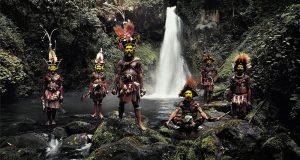 The world we know is changing rapidly. The globalizing monster engulfs our world and makes for a more boring, more bland , more homogeneous place . Now we can easily find a gleaming Mc Donalds in Kathmandu , on the spot formerly occupied by an old ruined temple , or a Masai warrior proudly wearing his Nike sneakers instead of carrying a spear. The pace of urbanization in the cities is increasing at a fast pace , more than half the world’s population lives in them. And yet , in the XXI century there are still communities living in complete isolation. They are the last survivors of a disappearing world inexorably . But before that happens, the English photographer Jimmy Nelson wanted to portray in all its dignity and grandeur.
The world we know is changing rapidly. The globalizing monster engulfs our world and makes for a more boring, more bland , more homogeneous place . Now we can easily find a gleaming Mc Donalds in Kathmandu , on the spot formerly occupied by an old ruined temple , or a Masai warrior proudly wearing his Nike sneakers instead of carrying a spear. The pace of urbanization in the cities is increasing at a fast pace , more than half the world’s population lives in them. And yet , in the XXI century there are still communities living in complete isolation. They are the last survivors of a disappearing world inexorably . But before that happens, the English photographer Jimmy Nelson wanted to portray in all its dignity and grandeur.
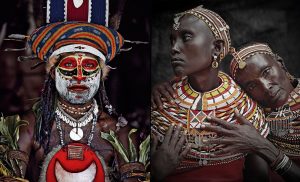 Until very recently, Jimmy Nelson was an unknown photographer for the general public , despite weigh more than two decades traveling the world with his camera and have gained international prestige with its magnificent images. One day , he decided to embark on a major photographic project which he called Before They pass away . It consisted of two weeks to over a year and a half in different isolated tribes in the world , knowing their ancient traditions , participating in their rituals and retratándolas a very attractive way. His detailed pictures exhibit unique jewelry, hairstyles and colorful costumes curious , not to mention the environment and the most important cultural elements of each tribe. The aim of Jimmy Nelson was to ensure that the world will never forget the existence of these communities , before changing your lifestyle forever.
Until very recently, Jimmy Nelson was an unknown photographer for the general public , despite weigh more than two decades traveling the world with his camera and have gained international prestige with its magnificent images. One day , he decided to embark on a major photographic project which he called Before They pass away . It consisted of two weeks to over a year and a half in different isolated tribes in the world , knowing their ancient traditions , participating in their rituals and retratándolas a very attractive way. His detailed pictures exhibit unique jewelry, hairstyles and colorful costumes curious , not to mention the environment and the most important cultural elements of each tribe. The aim of Jimmy Nelson was to ensure that the world will never forget the existence of these communities , before changing your lifestyle forever.
I wanted to create an ambitious photographic document that will stand the test of time , record a rapidly disappearing world.
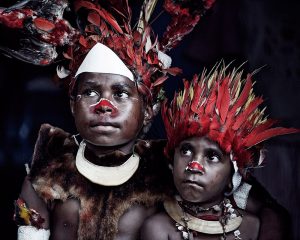 They pass away Before traveling to the remotest corners of the Earth in order to document the cultural and social wealth of a world constantly threatened by «progress.» The United Nations Declaration on the Rights of Indigenous Peoples states: «All peoples contribute to the diversity and richness of civilizations and cultures, which constitute the common heritage of mankind.» Never forget.
They pass away Before traveling to the remotest corners of the Earth in order to document the cultural and social wealth of a world constantly threatened by «progress.» The United Nations Declaration on the Rights of Indigenous Peoples states: «All peoples contribute to the diversity and richness of civilizations and cultures, which constitute the common heritage of mankind.» Never forget.





